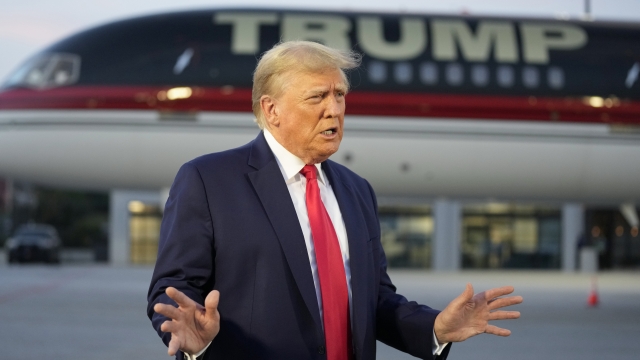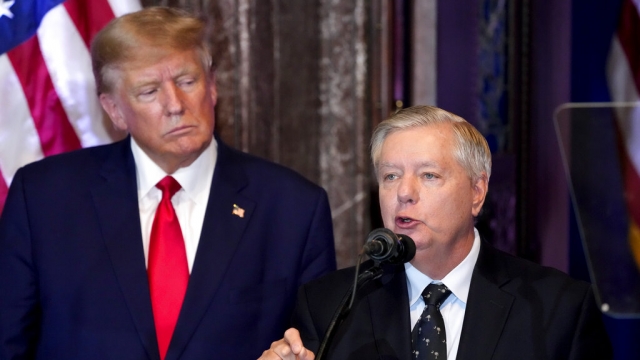DENVER – Former President Donald Trump has requested that a lawsuit brought forth by a group of mostly Republican voters in Colorado to bar him from appearing on the 2024 presidential primary ballot be moved from state to federal court.
The request, submitted Thursday, argues that the petitioners have “fashioned their claims for relief citing only state law,” and goes on to say that “state law cannot conceal the underlying federal constitutional issue in dispute.”
The lawsuit, filed in U.S. District Court in Denver a day prior, petitions that Colorado Secretary of State Jena Griswold bar Trump from appearing on the state’s 2024 presidential primary ballot under Section 3 of the 14th Amendment of the U.S. Constitution.
The rarely used clause prohibits anyone who has taken an oath of office from holding public office again if they have “engaged in insurrection or rebellion” against the United States, unless they are granted amnesty by a majority of Congress.
The group of petitioners, represented by Citizens for Responsibility and Ethics – a Washington-based watchdog group – claim Trump “violated that oath by recruiting, inciting and encouraging a violent mob that attacked the Capitol on January 6, 2021 in a futile attempt to remain in office.”
Trump has yet to be charged in connection with these allegations.
Lawsuits under this clause are rare, the watchdog group noted, “due to lack of insurrections,” but in 2022, residents in New Mexico won a lawsuit using this clause to remove county commissioner Couy Griffin from office after a judge determined January 6th was an insurrection under the Constitution and that someone who helped to incite it – even if not personally violent – had engaged in insurrection and was disqualified from office.
"I would say not only is Colorado law unclear, the U.S. Constitution is also unclear," Griswold told Denver7 Wednesday. "What's unclear about Section 3 of the 14th Amendment is that it doesn't say whether someone who would be disqualified can run for office, or whether they are just not seated after they win office. It also doesn't say who gets to decide whether a candidate is disqualified under Section 3 of the 14th Amendment. The court of law has to decide whether Section 3 of the 14th Amendment even applies to ballot access. The court would have to decide who the decision maker is, [and] whether Colorado law is clear [on this matter]."
Trump is facing similar lawsuits in Arizona, Michigan and New Hampshire, according to ABC News, in addition to four indictments handed this year alone, which are currently moving through the court system.
He is accused of plotting to overturn his 2020 election loss in Georgia and Washington, D.C.; of hoarding classified documents he took with him to Florida after leaving the White House; and of falsifying business records related to hush money paid on his behalf in Manhattan. Some of Trump’s criminal trials are scheduled to overlap with the presidential primary season, according to the Associated Press.









